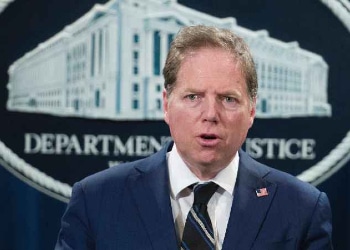The US Attorney General’s surprise ousting of a top US prosector could potentially have repercussions on high-profile drug cases in Latin America, two of which involve sitting presidents.
Attorney General William Barr said in a June 19 press release that Geoffrey Berman, the US Attorney for New York’s Southern District, had stepped down. Berman quickly countered in a statement, saying that he had not resigned and has no intention of resigning, sparking a showdown between the Justice Department and one of its most powerful districts, which prosecutes some of the country’s biggest criminal cases.
Berman eventually stepped down after Barr told him that he had been fired by President Donald Trump and that his hand-picked No. 2, Deputy US Attorney Audrey Strauss, had been appointed as acting US Attorney until a permanent replacement could be found, according to a June 20 Reuters report.
SEE ALSO: InDepth Coverage of Elites and Organized Crime
Berman had originally said he would not step down until a “presidentially appointed nominee is confirmed by the Senate.” Until then, he vowed that his investigations would continue “without delay or interruption,” adding that he would ensure his office’s many “important cases continue unimpeded.”
Attorney General Barr replied in a June 20 letter that he had asked President Trump to remove Berman. “He has done so,” Barr wrote.
Upon announcing Berman’s resignation, Barr said that President Trump would nominate Jay Clayton, the current Chairman of the Securities and Exchange Commission, to replace him. Barr said that Clayton would be a “worthy successor to the many historic figures who have held that post” in New York.
InSight Crime Analysis
During his tenure, US Attorney Berman has indicted Latin American elites across the political spectrum who have facilitated and benefited from drug trafficking to the United States.
Berman spearheaded the prosecution of Honduran President Juan Orlando Hernández’s brother, Juan Antonio “Tony” Hernández, who was ultimately convicted of drug trafficking in October 2019.
Since then, however, Tony Hernández’s sentencing has been postponed five times and is now scheduled to take place in September, more than a year after his conviction, raising questions as to how the shakeup in New York might impact those proceedings.
In addition, prosecutors with the Southern District of New York have repeatedly called President Hernández a co-conspirator in his brother’s drug trafficking ring, even implicating him in providing protection to a drug lab producing hundreds of kilograms of cocaine per month along a stretch of the country’s Caribbean coast. Prosecutors have also accused a number of Honduran officials with links to the president of drug trafficking, most recently former police chief Juan Carlos Bonilla Valladares, also known as “El Tigre.”
In the indictment of Bonilla, President Hernández, who is identified only as CC-4, is said to have helped Bonilla advance his position within the Honduran National Police while Hernández was the head of congress between 2010 and 2013. In return, Bonilla “protected” drug trafficking activities and was so “highly trusted” by President Hernández and his brother that the two tasked him with “special assignments, including murders,” prosecutors said.
The circle of accusations around President Hernández has generated suspicion that he could be indicted, though that is unlikely, given that the United States does not usually indict sitting or former heads of state.
SEE ALSO: Will Tony Hernández Conviction Upend Narco-Politics in Honduras?
However, reservations about indicting heads of state did not stop Berman’s office in the Southern District of New York from presenting a sweeping March 2020 indictment against Venezuela President Nicolás Maduro and a number of his top political allies. Berman accused Maduro and other officials of running a “narco-terrorism partnership with the Revolutionary Armed Forces of Colombia (Fuerzas Armadas Revolucionarias de Colombia – FARC) for the past 20 years.”
Before that, in March 2019, Berman also led the effort to target Tarek El Aissami, one of Venezuela’s most powerful operators, for violating US sanctions imposed as a result of his alleged links to international drug trafficking.
In April 2018, drug trafficking charges levied by the Southern District against former FARC commander Seuxis Pausías Hernández, alias “Jesús Santrich,” in part spurred him and other key rebel leaders to abandon Colombia’s peace process. He ultimately took up arms again with fellow former commander Luciano Marín Arango, alias “Iván Márquez,” in August 2019. Márquez was indicted alongside Maduro on drug trafficking charges this year.
All of that said, it’s still much too early to say what Berman’s imminent departure would mean for future drug trafficking cases out of Latin America.

